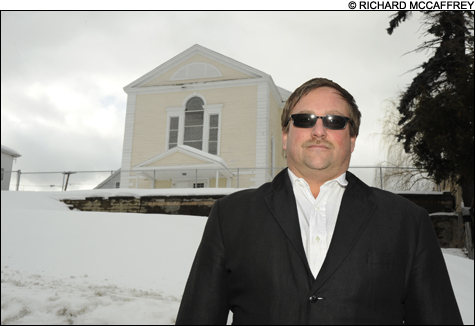In the five years since the General Assembly approved Rhode Island's medical marijuana law, licensed smokers have operated in a sort of smoke-filled netherworld.
Without a legal place to buy pot, they've been forced to purchase it on the street, grow it themselves, or find friends or strangers willing to grow for them — "caregivers" under state statute.
This underground economy has been occasionally scary (think cancer patients skulking around darkened street corners for weed), sometimes less than law-abiding (more than a few sanctioned patients and caregivers have ventured into the, um, unsanctioned), and often unreliable.
But it has also spawned a culture of committed, DIY growers who have taught patients the arts of cultivation and provided ounce upon ounce of free or low-cost bud to those in need.
The medical Mary Jane movement has been a messy, grassroots, colorful affair. And for better or for worse, it's about to change. In a big way.
The Rhode Island Department of Health is weighing 18 applications for non-profit medical marijuana dispensaries — sizable salaries allowed, but corporate profits barred. And it is expected to approve up to three of the "compassion centers" early next month.
If the applications for the new facilities are any guide, the medical marijuana movement will soon enter a whole new phase: think cooking lessons (mmm . . . brownies), yoga classes, and state-of-the-art security systems.
Medical pot, long a furtive exercise, is going mainstream.
Patients and advocates welcome the shift, by and large. But there is a touch of ambivalence:
Will compassion-center weed be too expensive? Amid talk of tens of millions in revenue, will the movement go corporate? And whither the mom-and-pop growers — and the culture they have cultivated?
The medical marijuana movement is in flux. And the transition story is, perhaps, best told through the tales of those on the front line.
Here are a few:

MARIJUANA MINISTRY Pastor Erik outside his church. |
THE PASTOR
Just after 6 am on September 14, the West Warwick police burst into an old church on Providence Street and rousted Erik Johansson and his girlfriend Lydia Brindamour from bed.
Found on the premises: 183 marijuana plants, several bags of soil and fertilizer, a metal tub with a motorized system for trimming leaves, an extensive overhead lighting network, a Remington 12-gauge shotgun, and $565 in cash.
For the cops — and the Bureau of Alcohol, Tobacco, Firearms and Explosives, which later filed federal charges against the couple for conspiring to manufacture over 100 marijuana plants and manufacturing over 100 marijuana plants — this was evidence of a criminal enterprise.
For Johansson, Rhode Island's self-styled marijuana minister, it was the raw material of a "true community" — something "beautiful" and "awesome." And for the rest of us, Pastor Erik's demise is a lesson in the promise and perils of medical marijuana's underground period.
Johansson's story is a little difficult to piece together. The preacher is tight-lipped about some of the inner workings of his ministry. And the authorities, with the case pending, are similarly reticent.
But Johansson, 47, says it all started about four years ago when he got a call from a Good Samaritan type in Florida saying that his father was sick, talking suicide, and — generally speaking — a mess.